views
- Use a gentle, fragrance- and perfume-free cleanser and moisturizer twice a day.
- Put on non-comedogenic SPF 30 or higher sunblock every morning.
- Choose products formulated for your skin type, and treat acne with cleansers or creams that contain salicylic acid or benzoyl peroxide.
Skincare Routine for Preteens
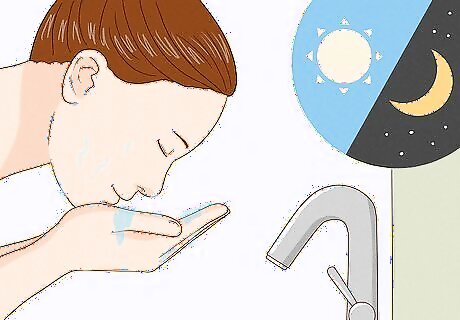
Use an unscented, gentle face wash twice a day. Dr. Paul Friedman, a Texas and New York-based dermatologist with 20 years of experience, recommends “gentle cleansers” and to make sure you wash your face “twice a day, especially at [night] to help remove the debris and the oil that accumulates on [y]our skin.”. Steer clear of exfoliating products, alcohol-based products, and cleansers with long ingredient lists. Check out Cetaphil’s Daily Facial Cleanser if you have oily or sensitive skin and Cetaphil’s Gentle Skin Cleanser if your skin is dry. Only wash your face twice a day. Any more could dry out your skin and lead to excess oil production and acne.
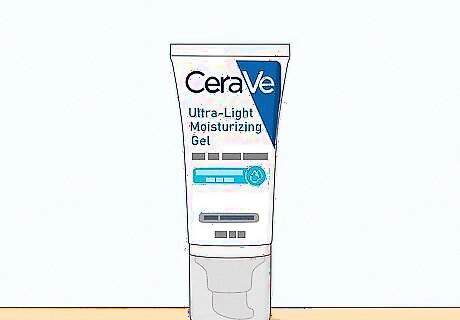
Moisturize with a water or gel-based cream. Whether you have oily or dry skin, moisturizing is an important step in protecting your skin’s barrier. Look for water or gel-based products that are noncomedogenic, which means they don’t clog pores. CeraVe’s moisturizers are gentle and contain ceramides, which protect the skin’s barrier. Hyaluronic acid serum is also a great moisturizer, especially for oily skin. Determine your skin type to figure out what products are best for you.
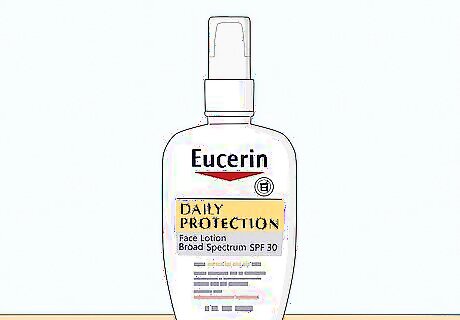
Use SPF 30 or higher sunblock. Finish off your skincare routine with a fragrance-free sunblock, even if your moisturizer has SPF. Use at least 30 SPF—sun damage is cumulative, so make sure you protect your skin every day! Eucerin Daily Protection Lotion SPF 30 is lightweight enough to not feel sticky or leave white marks on your skin.

Get at least 8 hours of sleep a night. Friedman also told us that “simple things…like reducing stress and getting…eight hours of sleep [are] very important for your skin.” For the best results, try to get as much sleep as possible before midnight. If you start developing dark circles, put cucumber slices over your eyes for 10-15 minutes.
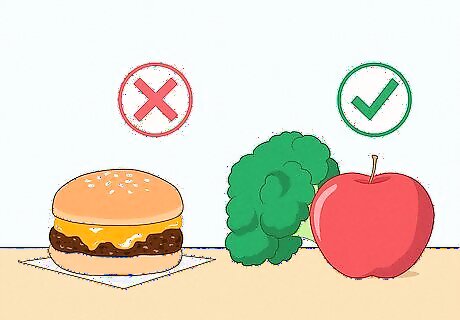
Eat fruits and vegetables and avoid oily, fatty foods. An oil-heavy diet can cause your skin to become oily and break out. Eat dark leafy greens and fruit, and save fatty foods for an occasional treat.
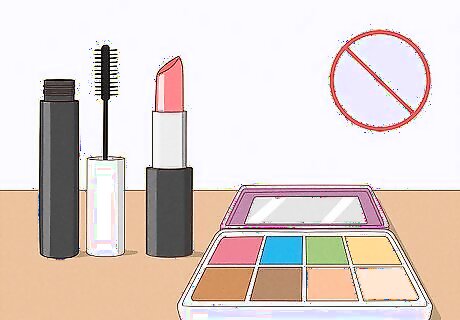
Wear non-irritating makeup with natural ingredients. If you like wearing makeup, look for products with short ingredient lists and search them in the Environmental Working Group’s Skin Deep Database to check for harmful chemicals. Some makeup can clog your pores and lead to excess oil production (and acne!). Always remove your makeup before bed. Sleeping in makeup can cause breakouts. Start with light products, like lip gloss and powder foundation, then work up to heavier makeup like eyeliner and eyeshadow.
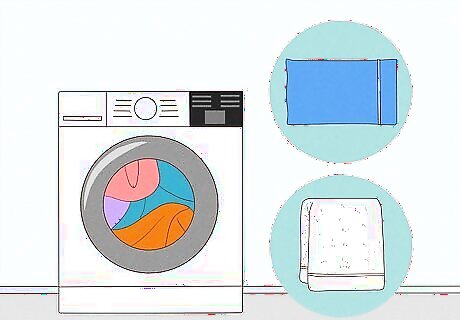
Wash anything that touches your face. When you touch your face or put something dirty on it, you can clog your pores. Wash your pillowcases, phone, towels, glasses, and sports equipment at least twice a week to prevent breakouts, and always wash your hands before touching your face.
Skincare Routines for Acne Prone Skin
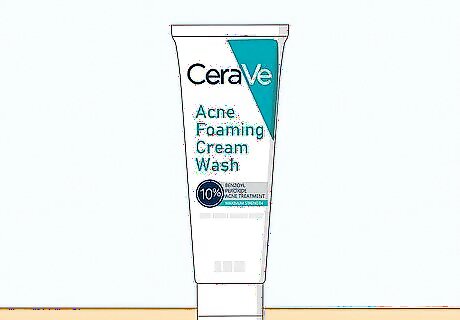
Use a cream cleanser with benzoyl peroxide or salicylic acid. Acne-prone skin is sensitive, and many soap-based products can dry it out (and make your acne worse!). Look for creamy, foaming cleansers with acne-fighting ingredients like benzoyl peroxide and salicylic acid. Benzoyl peroxide is a bleaching agent and can stain dark cloth. It can also be harsher on your skin than salicylic acid. Some dermatologist-recommended products are LaRoche Posay Effaclar Cleanser (with salicylic acid), CeraVe Hydrating Foaming Cleanser, and CeraVe’s Benzoyl Peroxide Acne Foaming Cream Wash.
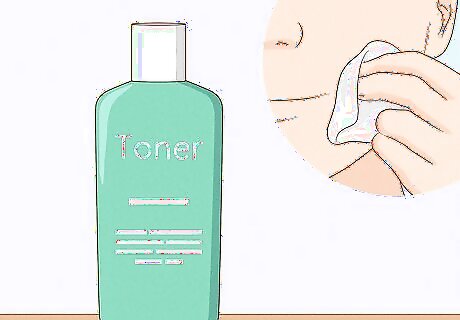
Exfoliate with chemicals, not a scrub. Physical exfoliants can damage and irritate your skin, so opt for a balancing exfoliating toner or exfoliating cream, like P50 1970. Put it on a cotton ball and wipe it over your skin and neck twice a day after cleansing. If you have a problem with oil production as well, esthetician and owner of Smoothe Denver Alicia Ramos recommends toners: “[They] can work wonders to reduce oil on the surface of the skin.” Clinique makes four toners, for extra dry to oily skin types.
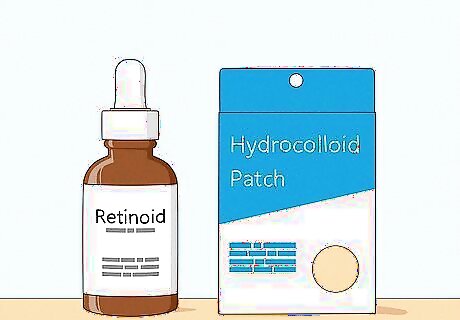
Use retinoids and hydrocolloid patches on acne. Once you cleanse and tone your face, spot-treat acne with retinoids, benzoyl peroxide creams, salicylic acid creams, or hydrocolloid patches. Retinoids and benzoyl peroxide dry out your skin, so use a very small amount (a pea-sized drop can cover your entire face). You can spot treat your acne in the morning and evening, but only use one product at a time. Generally, it’s best to use retinoids at night and benzoyl peroxide or salicylic acid in the morning. Retinoids cause “cell turnover,” which makes your skin quickly produce more cells. They also cause your skin to be more sensitive to the sun, so be sure to always wear sunscreen! Hydrocolloid patches pull impurities out of your skin without irritating it. Start with a very small amount of product and slowly use more over time. Stop using a product if it hurts to use after 7-10 days.
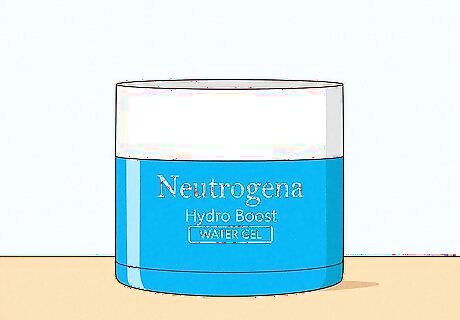
Moisturize with gentle gel moisturizers. Diana Yerkes, the lead esthetician at Rescue Spa in New York, advises people with acne to “use a good moisturizer that's going to add hydration, because when your skin [dries] out [it]...produces even more oil to compensate for the fact that you just removed [it all]. Use a moisturizer with hyaluronic acid, like Neutrogena Hydro Boost or CeraVe’s Moisturizing Cream. This is especially important if you use drying acne products like benzoyl peroxide.
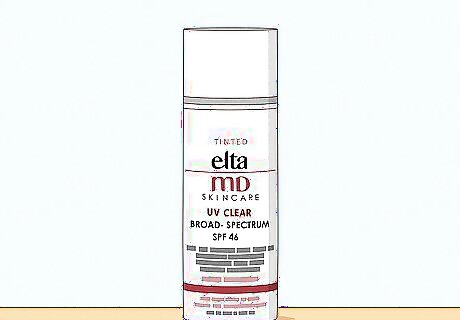
Use mineral sunblocks that are at least 30 SPF. Sunblock is one of the most important products for protecting your skin. Look for noncomedogenic, fragrance-free products to ensure they won’t clog your pores. Elta MD UV Clear SPF 46 is good for oily, acne-prone, or rosacea skin. Cetaphil Dermacontrol Oil Absorbing Moisturizer Sunscreen has oil-absorbing properties that makes it good for all skin types and won’t aggravate your acne.
Skincare Routines for Oily Skin
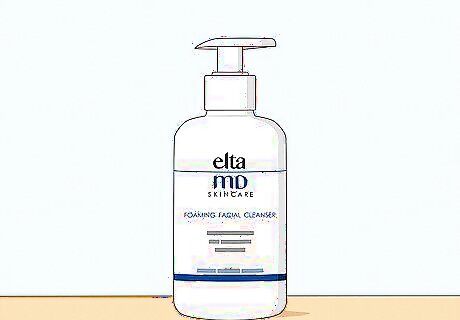
Cleanse with a gentle cream face wash. Lead esthetician at Rescue Spa New York Diane Yerkes warns that products marketed for oily skin often make the problem worse: “Every time you use a gel cleanser and your skin…almost feels super tight…it means your skin is depleted [and] quite stressed out…and it goes and produces more oil…to compensate.” Alicia Ramos, esthetician and owner of Smoothe Denver recommends Elta MD Foaming Cleanser for oily and sensitive skin. A less expensive option is Cetaphil’s Daily Facial Cleanser.
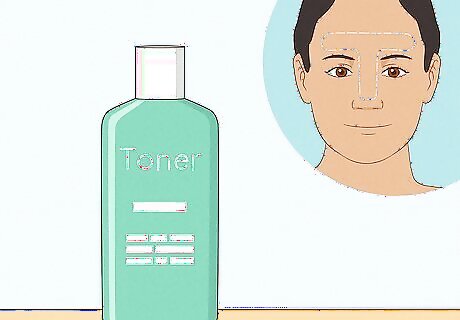
Control oil production with toners. Oil often builds up on your “T-zone,” or the T-shaped area where your nose and forehead connect. Wipe a toner formulated for oily skin across your forehead and down the bridge of your nose twice a day. If your skin builds up oil during the day, pat it away with blotting papers. Don’t use drying agents like alcohol or witch hazel, which can cause irritation.
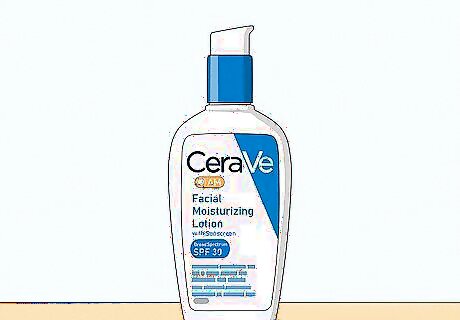
Use gentle, mild moisturizers. If you strip your skin’s natural oils and then don’t moisturize, your skin will overproduce oil to try and replace it. Look for gentle moisturizers that aren’t oil or glycerin-based, or the problem can get worse. Look for niacinamide, a chemical that helps combat sebum production (the oil that builds up on your skin). CeraVe Moisturizing Lotion AM is a great choice for oily skin types.
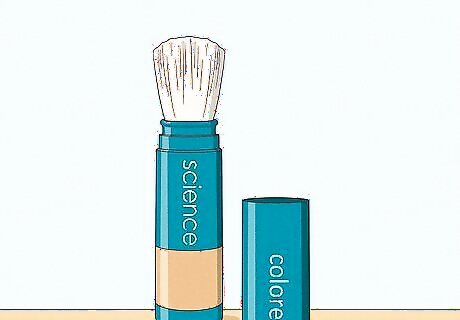
Try powder sunblocks to prevent clogged pores. If you don’t want to put layers and layers of cream on your face, use a powder, or brush on sunblock, like Colorscience’s Brush on Sunscreen. If you want to use a cream, look for an oil-free mineral sunblock.
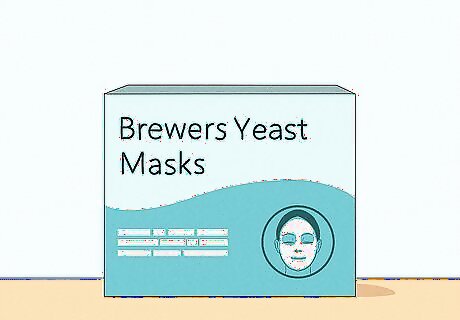
Use face masks twice a week. Yerkes recommends pampering oily skin twice a week with hydrating face masks. She loves “Brewers Yeast masks…because [they]...improv[e] the skin texture…without drying the skin out.”
Skincare Routines for Dry or Sensitive Skin
Only use creamy, fragrance-free, and additive-free products. Dyes, fragrances, and other additives can irritate dry and sensitive skin, so look for cream-based hypoallergenic products with short ingredient lists. Try Cetaphil Gentle Skin Cleanser and Eucerin Sensitive Mineral Sunscreen.
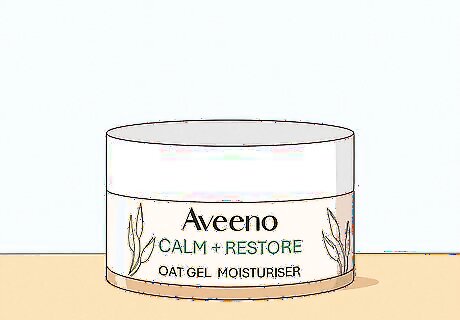
Moisturize with oil-free, creamy moisturizers. Dry skin and sensitive skin can be treated similarly since both are easily irritated. Soothing, oil-free moisturizers like Aveeno Calm and Restore Oat Moisturizer have anti-inflammatory properties that hydrate skin without irritating it.

Soothe your skin with oatmeal, turmeric, or honey. If your skin is painful and inflamed, try an oatmeal mask, honey mask, or mix of turmeric and water. All of these ingredients are anti-inflammatory, and honey is antimicrobial, as well. Turmeric may stain your face. Licensed esthetician Diana Yerkes recommends taking turmeric pills for inflammatory acne and eczema: “Tumeric is…[a]mazing for eczema. I personally have eczema, so I actually take turmeric and black pepper capsules to control the inflammatory action of my stomach…internally…[I]t’s good for oily skin,...sensitive skin…I like it…for clearing up an acne breakout.”
Advice for Athletes

Wash your face, back, and chest after heavy activity. While sweat can push impurities out of your pores, it can also clog them if it sits on your skin for too long. Use a body wash like CLn’s SportWash and a face wash suited for your skin type.

Wash your sports equipment regularly. To keep dirt and oil from rubbing up against your skin, wash all of your athletic gear (jerseys, helmets, hats, sweatbands, etc.) after using them. Change your pillowcases twice a week and regularly clean your phone, as well.

















Comments
0 comment